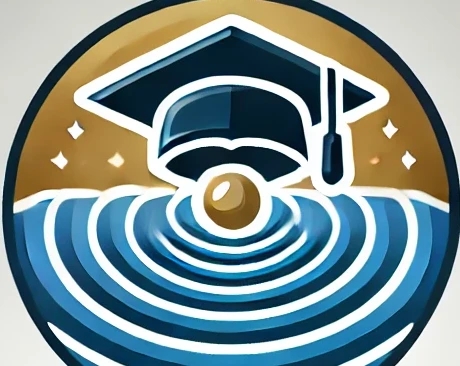Between endless assignments, upcoming tests, and the pressure to do well, it’s easy to fall into a cycle of cramming and stressing. Many students believe that spending more hours buried in books is the key to academic success, but the truth is, it’s not always about how long you study—it’s about how smart you study. That’s where effective study techniques come into play.
Every student has a different learning style. Some absorb information better by writing things down, while others might prefer listening or engaging in hands-on activities. Yet, despite these differences, there are tried-and-true strategies that can help just about anyone make the most of their study time. These aren’t complicated tricks or gimmicks—they’re practical, science-backed methods that help you understand and retain information more efficiently, reduce stress, and boost your confidence during exams.
Whether you’re a high school student trying to juggle multiple subjects, a college student managing a full course load, or even an adult returning to school after a break, adopting the right study techniques can make a huge difference. The goal isn’t to memorize everything overnight but to develop habits that make studying a more focused, productive, and even enjoyable experience.
In this guide, we’ll walk you through the top 10 study techniques for academic success. From managing your time better to using powerful memory tricks, these strategies are designed to help you get the results you’re aiming for—without burning out. So grab your notebook, get comfortable, and let’s dive into some smarter ways to study.
Top 10 Study Techniques for Academic Success
1. Active Recall
Instead of just reading your notes over and over, try testing yourself on what you’ve learned. That’s active recall. It forces your brain to pull out information without looking at the answer, which strengthens your memory. Think flashcards, practice questions, or simply covering your notes and trying to recite the material. It might feel tough at first, but that struggle is exactly what makes it stick.
2. Spaced Repetition
Cramming might help you pass a test tomorrow, but if you want the information to last, you need to space out your study sessions over time. This method is called spaced repetition. The idea is simple: review material several times over increasing intervals—like a few hours later, the next day, then two days later, and so on. It’s a smart way to beat forgetting and make knowledge long-term.
3. Pomodoro Technique
Ever feel like you study for hours but don’t get much done? The Pomodoro Technique helps you stay focused by studying in short, intense bursts. You study for 25 minutes, then take a 5-minute break. After four rounds, you take a longer 15–30 minute break. This helps your brain stay fresh and reduces burnout.
4. Mind Mapping
If you’re a visual learner, mind maps are gold. They help you connect ideas by drawing them out in branches from a central topic. It’s like building a map of your thoughts, and it helps you see the “big picture” while also remembering smaller details. Plus, it can make studying more engaging and creative.
5. Teaching Others
One of the best ways to truly understand something is to teach it. When you try explaining a concept to someone else (or even to yourself out loud), you quickly figure out what you really know and what you’re just skimming over. This method helps you reinforce your understanding and find any gaps in your knowledge.
6. Setting Specific Goals
Instead of saying, “I’m going to study biology today,” try, “I’ll review cell structure and do five practice questions on it.” Setting clear, bite-sized goals gives your study session purpose and direction. It also helps keep you motivated because you can track your progress and feel a sense of accomplishment.
7. Practice with Past Papers
One of the most effective ways to prepare for exams is to get familiar with their format. Practice past questions or mock tests to understand how questions are typically asked. This not only improves your confidence but also highlights topics you need to work on. It’s a great way to simulate real exam pressure in a low-stakes environment.
8. Study in a Distraction-Free Environment
Your study space matters. If your phone keeps lighting up, or if the TV is on in the background, your brain is constantly switching tasks—which hurts focus and memory. Try to find a quiet, tidy space where you can really concentrate. If you’re using your phone to study, consider using apps that block social media during your sessions.
9. Stay Organized
Keep your notes, textbooks, and schedules in order. Use planners, folders, or apps to track what you’ve studied, when your tests are, and what topics still need your attention. Being organized reduces stress and helps you stay on top of everything—especially during busy exam seasons.
10. Take Care of Yourself
It’s easy to forget that your brain is part of your body. If you’re not getting enough sleep, skipping meals, or constantly stressed, no study technique will be as effective. Try to get enough rest, eat nutritious foods, stay hydrated, and take breaks when needed. A healthy mind learns better.
In Summary
Studying isn’t about grinding for hours on end—it’s about finding what works for you and using your time wisely. These techniques aren’t magic, but they do work when applied consistently. Try a few, see what fits your learning style, and adapt as you go. Academic success isn’t about perfection—it’s about steady, focused effort. You’ve got this!
FAQs: Top 10 Study Techniques for Academic Success
1. What’s the best study technique for remembering information long-term?
The most effective method for long-term memory is spaced repetition. It works by reviewing material at intervals over time, helping your brain move information from short-term to long-term memory.
2. How can I avoid procrastination while studying?
Try the Pomodoro Technique. It breaks study time into short, focused chunks (25 minutes), followed by quick breaks. This can make studying feel more manageable and help you stay focused.
3. How do I know which study technique works best for me?
Start by experimenting with different techniques—like mind mapping, active recall, or teaching others. Everyone learns differently, so find what feels natural and helps you retain the most information.
4. Is it better to study at night or in the morning?
That depends on your personal energy levels. Some people focus better early in the day, while others are more alert at night. Try both and stick with the time that helps you stay sharp and focused.
5. Can listening to music help me study better?
It depends on the type of music and the task. Instrumental or lo-fi music can help some people concentrate. But if music distracts you, it’s best to study in silence or use background white noise.
6. How long should I study each day?
There’s no one-size-fits-all answer. Instead of studying for hours on end, aim for consistent daily sessions (1–2 hours with breaks). Quality matters more than quantity.
7. Are group study sessions helpful?
They can be—especially when you’re explaining concepts to each other (which boosts understanding). Just make sure the group stays on topic and doesn’t turn into a hangout.
8. What should I do if I feel overwhelmed with too much to study?
Start by breaking your material into smaller chunks and set daily goals. Focus on one topic at a time, use a planner or checklist, and give yourself permission to take breaks.
9. How can I stay motivated to study regularly?
Set small, achievable goals, reward yourself for progress, and remind yourself of the bigger picture (like your dreams, grades, or future career). Studying with a plan helps reduce mental resistance.
10. Is rereading notes a good study technique?
Rereading can be helpful for review, but it’s not very effective on its own. Combine it with active recall—like testing yourself or teaching the material—to really make the information stick.
Check this video for additional information.



